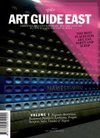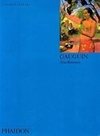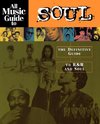
-
 Anglický jazyk
Anglický jazyk
Samplers
Autor: Source: Wikipedia
Source: Wikipedia. Pages: 43. Chapters: Synclavier, Fairlight CMI, Sampler, Ensoniq Mirage, Kaoss Pad, Music Production Center, E-mu Emulator, Korg Triton, Roland Sound Canvas, Kurzweil K2000, Casio FZ-1, Kontakt, Ensoniq EPS, E-mu SP-1200, Korg DSS-1, Ensoniq... Viac o knihe
Na objednávku, dodanie 2-4 týždne
15.30 €
bežná cena: 17.00 €
O knihe
Source: Wikipedia. Pages: 43. Chapters: Synclavier, Fairlight CMI, Sampler, Ensoniq Mirage, Kaoss Pad, Music Production Center, E-mu Emulator, Korg Triton, Roland Sound Canvas, Kurzweil K2000, Casio FZ-1, Kontakt, Ensoniq EPS, E-mu SP-1200, Korg DSS-1, Ensoniq ASR-10, Akai MPC60, LinuxSampler, Vienna Symphonic Library, Prime Loops, E-mu Emax, Akai S3000XL, Roland SP-808, Roland MS-1 Digital Sampler, Kompakt, Yamaha TX16W, Roland SP-303, Akai S1000, Cheetah Sound Sampler, Roland SP-404, E-mu Emulator X, Emulator X2. Excerpt: A sampler is an electronic musical instrument similar in some respects to a synthesizer but, instead of generating sounds, it uses recordings (or "samples") of sounds that are loaded or recorded into it by the user and then played back by means of a keyboard, sequencer or other triggering device to perform or compose music. Because these samples are now usually stored in digital memory the information can be quickly accessed. A single sample may often be pitch-shifted to produce musical scales and chords. Often samplers offer filters, modulation via low frequency oscillation and other synthesizer-like processes that allow the original sound to be modified in many different ways. Most samplers have polyphonic capabilities - they are able to play more than one note at the same time. Many are also multitimbral - they can play back different sounds at the same time. Prior to computer memory-based samplers, musicians used tape replay keyboards, which store recordings on analog tape. When a key is pressed the tape head contacts the tape and plays a sound. The Mellotron was the most notable model, used by a number of groups in the late 1960s and the 1970s, but such systems were expensive and heavy due to the multiple tape mechanisms involved, and the range of the instrument was limited to three octaves at the most. To change sounds a new set of tapes had to be installed in the instrument. The emergence of the digital sampler made sampling far more practical. The first digital sampler was the EMS Musys system, developed by Peter Grogono (software), David Cockerell (hardware and interfacing) and Peter Zinovieff (system design and operation) at their London (Putney) Studio c. 1969. The system ran on two mini-computers, Digital Equipment's PDP-8s. These had 12,000 (12k) bytes of read-only memory, backed up by a hard drive of 32k and by tape storage (DecTape). EMS equipment was used to control the world's first digital studio. The first commercially available sampling synthesiz
- Vydavateľstvo: Books LLC, Reference Series
- Rok vydania: 2013
- Formát: Paperback
- Rozmer: 246 x 189 mm
- Jazyk: Anglický jazyk
- ISBN: 9781157007128







 Ruský jazyk
Ruský jazyk 



 Nemecký jazyk
Nemecký jazyk 
